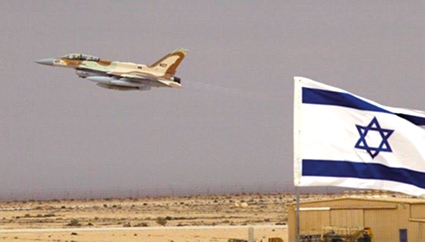Russia & Israel in Syria
Op-ed
Russia retains an important place on the Syrian battlefield. However, it is often challenged by many regional powers which are also interested in the developments in Syria. Iran, Turkey and others are good examples, but recently yet another country, Israel, is set to gradually increase its position there. The most recent example of Israeli activities is a good reflection of Russian problems: the February 11 launching of multiple air strikes on Syrian-Iranian targets in Syria.
Russian politicians so far have been surprisingly mute on the Israeli airstrikes. There has been just one official statement from the Russian Foreign Ministry which urged all sides involved to show restraint and avoid actions that could lead to complicating the situation further.
However, the lack of comments from the Russian politicians does not hide the fact the Kremlin is in an increasingly difficult position as it tries to maintain good relations with both Iran and Israel, both of which share deep differences.
A number of political commentators believe that there is nothing new as Israel had always vowed to destroy military build-ups near its borders and the action was quite foreseeable considering Netanyahu’s comments during his last visit to Moscow late January.
At the same time, Russians are wondering to what extent the Kremlin will go in allowing Israel to carry out targeted actions on Syrian soil. With these latest airstrikes, it has become clear the Israeli military engagement could in fact evolve into something more serious, out of Russian control. And the Russians are keen to keep the balance in Syria.
Indeed, on a much wider lever, the Israeli airstrikes also show how ineffective the Russian efforts to maintain a dominant position in the Syrian battlefield have become. With the Turkish operation in Afrin, north Syria, it has become clear that Moscow is unable to forestall the increase of Ankara’s influence. Similar problems already existed with Iranian moves before, but now pro-Iranian forces are close to the Israeli border. More recently, Russia effectively failed to make something serious out of the Sochi conference in late January.
Comments in the Russian media hint that, strategically speaking, Russia would not want yet another powerful player such as Israel to enter an already overcrowded Syrian battlefield. This is particularly true as Moscow is currently aiming to solidify its positions following the important military victories. Deep Israeli involvement could, therefore, be regarded as something which can potentially unravel the dominant role of Russia in Syria.
At the same time, some hints in the Russian media over the past several days point to an interesting scenario whereby the Israeli involvement in Syria could force Russia to be more open in pro-Iranian strategy, while so far Moscow has always tried, at least officially, to maintain cooperation with both countries.
Some Russian pundits, however, suggest that since Moscow has been wary that its major ally, Iran, might eventually, through its proxies, seize the strategic opportunity and increase its clout in Syria: the country could be interested if not in Israel’s total engagement in Syria, then at least in some actions which could limit Iran’s power. In fact, days before the Israeli strikes in Syria, at a January 30 meeting with Russian President Vladimir Putin in Moscow, Netanyahu said that "[t]he most important thing is to make sure that we understand each other and that we don't shoot down each other's planes.”
Indeed, the question as to whether or not the Israeli involvement in the Syrian conflict will be confined to solely maintaining its own security along the borders was raised by some analysts in Russia over the past two days. Overall, the tone of the Russian media towards Israel was neutral at the time, with no particular anti-Iranian stance.
Considering Israel’s security imperatives, it could be argued that Israeli intervention was well expected. Iran is gaining most out of the Syrian chaos and it is highly likely that Israel will have to respond to that in the future even if the Golan Heights are not directly threatened. Since we do not have any other official statements from the Russian officials, nor direct government leaks in leading Russian dailies such as Kommersant, Izvestia and others, the Russian position will be important to watch. Like most other players in Syria, Moscow would not welcome any additional actors in the country. However, as seen in numerous analytical comments from Russia, the Russian leaders would not be entirely able to forestall future Israeli involvement in Syria, which is likely to remain active.
Emil Avdaliani












